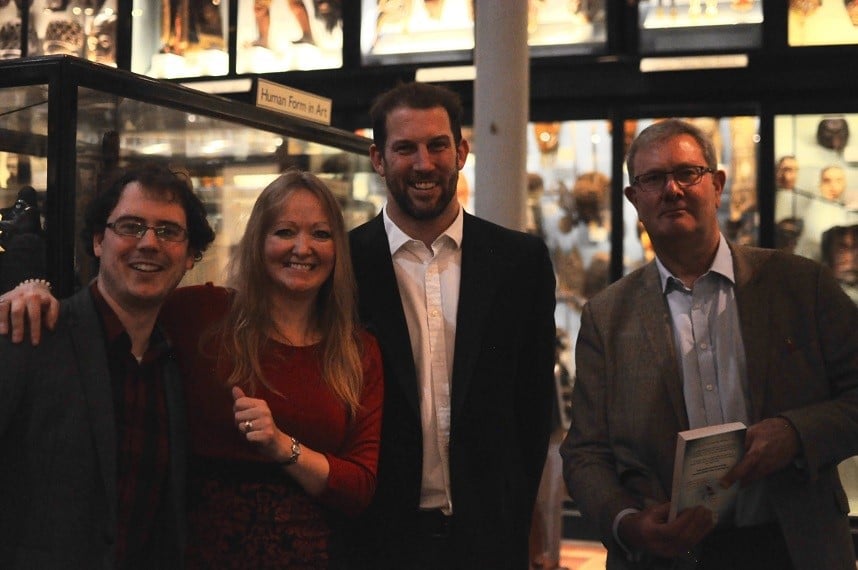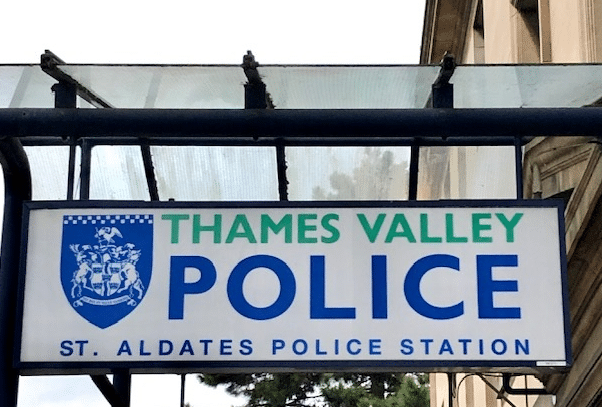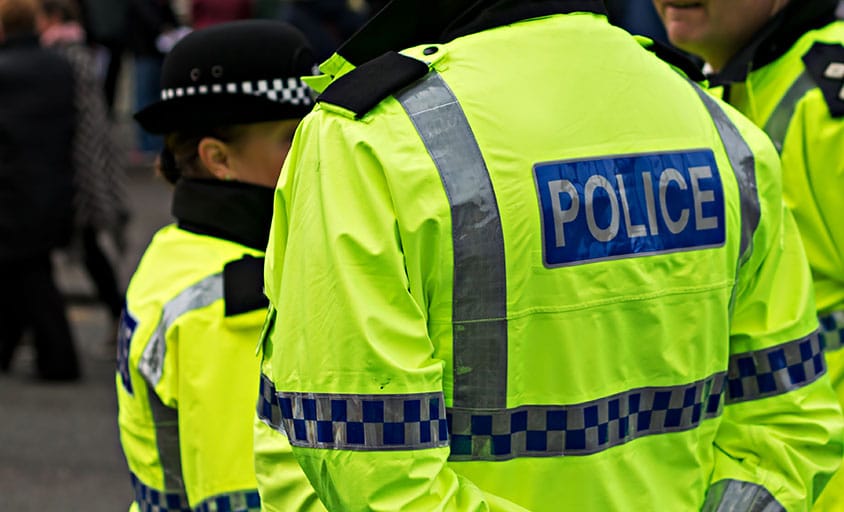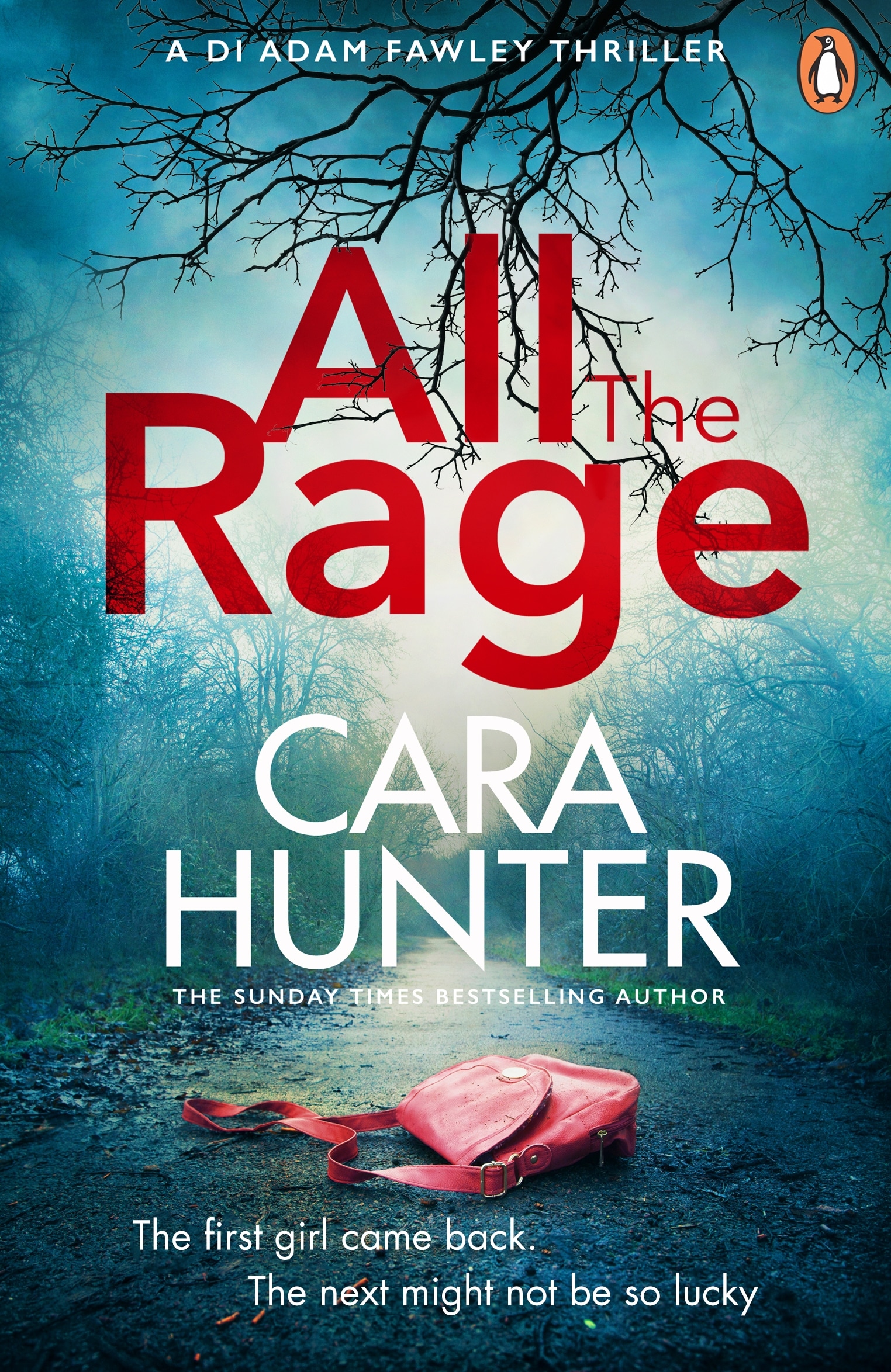Behind the Crime Scenes: The Detective
Without a doubt, the single most important member of my ‘pro team’ is Andy Thompson. He’s the Thames Valley DI who helps make sure that Adam Fawley’s everyday life is as close as possible to that of a real-life Detective Inspector.
When I wrote the first draft of Close to Home I didn’t ask for any input from police officers. I didn’t know any, and I felt very reticent indeed about rolling up to a police station and asking people doing vital, demanding (and under-paid) jobs to give up their time looking at something that might never see the light of day. So I did all my sleuthing online – and it’s surprising just how much you can find, if you know where to look. Anyway, it must have been reasonably successful, because one of the first things my wonderful editor, Katy, said to me was ‘This is so authentic – you must have spoken to loads of police officers’. Cue me blushing furiously and fessing up! But we both decided that getting the once-over from a serving officer would be a good idea.
The challenge was finding one. But then I remembered my local councillor, whom I knew quite well – surely he’d know a few police officers? And of course he did – he put me onto the local area Inspector, based at St Aldate’s (just like Adam). And that’s how I first met Andy.
He’d never helped a crime writer before, so he had to go through the internal approval process to be put on the official list of police advisers. And he did warn me right at the beginning that he finds most TV crime shows so far removed from real life he turns them off (just don’t mention Line of Duty!). So when we sat down to go through the manuscript I was a bit nervous, I can tell you. But he was brilliant – really approachable, and absolutely bang up-to-date with police procedure which, like a lot of other things, changes all the time so you can easily get caught out. I also worked out pretty quickly that every time he starts laughing, you know you’ve dropped a clanger…
For this edition of the newsletter I went up to interview him at the Thames Valley HQ in Kidlington, just north of Oxford (and this was pre-lockdown, by the way!). He’s now a DI himself, heading up a team dealing with the immensely demanding issue of domestic abuse – but I’ll let him tell you about that.
I think you told me you’ve been a police officer for 19 years – was that what you always wanted to be?
No – absolutely not. Right up to A levels I wanted to be a car designer with Jaguar. So I opted for maths and sciences because that’s what you need for that, and I was halfway through the course when the school suddenly said we needed to sort out work experience. A mate of mine got himself a stint with Warwickshire Police at Stratford-upon-Avon and I thought, why not? And I loved it – going out on shift with the uniform teams – I absolutely loved it. And it got me thinking about what I’d enjoyed in other jobs – holiday work, that sort of thing – and I realised that what really appealed to me was being a problem solver.
And you have the height for the police too! (👇)

Me and my ‘pro team’ at the launch of Close to Home. Left to right: Joey Giddings, Andy Thompson, Nicholas Syfret
Yeah, well, that’s been quite useful over the years! And when I was out with my rugby mates at school, I was always the one who was the peacekeeper, the one who calmed everyone down if things were threatening to kick off, and I guessed that might be a useful skill in the police too.
But you decided to go to university first?
I just thought 18 was too young to do that sort of job, and getting a degree would give me other options if I changed my mind. So I went to Cardiff and did Sport and Exercise, and at the end of it I applied first to South Wales Police, and then to Thames Valley. And I’ve been here ever since.
And you wanted to be a detective, even then?
No, actually I didn’t. There are some people who say they always wanted to be a career detective, right from the start, but I loved being in uniform as well – the neighbourhood stuff, talking to people. When I talk to new recruits I tell them, there’s a lot of procedure in this job, and yes, there’s a lot of bureaucracy too, but the main thing is, can you talk to people? Because as long as you can do that, the rest will come. You need to be able to ‘read’ people, build rapport – build relationships. That’s especially important in uniform, because just by the very nature of the job you’re going to see a lot of the same individuals over and over again. And on top of that you have to build confidence across the community, with all sorts of different groups. Because if you don’t, doing your own job is going to be that much harder.
Take graffiti, for instance. When I was in Oxford, I spent a lot of time trying to make connections with known taggers, trying to understand them a bit better. Then I organised a community meeting where we got them together with residents, just to talk things out, and by the end of it local people who’d been very hostile were suggesting things like murals and art projects. That was a real win. I love that part of the job.
So the next step was uniform sergeant?
Right. I sat my sergeant’s exams and then did a few different roles at that level– Banbury and Milton Keynes on shift, neighbourhood policing in Oxford, and some time doing Custody. I then moved to CID, beginning with the dedicated Burglary team in Oxford. I then did a broader CID role, before going back into uniform as the neighbourhood inspector for Oxford, which is when we met.
And as it happened, it was about that same time I started thinking seriously about what to do with the rest of my career. I had another twenty years in the job, if I wanted them, so I wanted the next move to mean something. I’d done a lot of different roles in uniform, I’d been a detective in a generalist role, but the one thing I hadn’t done was what we call PVP – Protecting Vulnerable People. In other words: child abuse, domestic abuse, and violent sexual offenders. I never thought I’d do it – I never wanted to do it – but it’s important to have an open mind, so I took a closer look at what it involved and here I am, two years later and I am actually very much enjoying it.
Why is that, do you think?
I’ve thought about that a lot – I think it’s probably the fact that, unlike other areas of CID, PVP brings together a lot of the best aspects of the previous roles I’ve done. It involves partnership work with external bodies like local authorities, for example, as well as problem-solving and community liaison. That’s a really good combination. And of course there’s the detective aspect of the job as well. When you’re in uniform, you get to see the beginnings of an investigation – basically because you’re always first there – but if it’s a serious case you’ll end up handing it over to the shirts and ties sooner or later. But if you’re a detective you see the whole process, from dealing with the victim, to apprehending the offender, right the way up to the courts.
So here’s a question I know a lot of my readers would like to ask: what’s the difference between what a DI does, and what a detective sergeant does?
OK, so if you think about the three ranks in an investigative team, you’ll have the Detective Constable (DC), the Detective Sergeant (DS), and the Detective Inspector (DI). The constables will be on the front line, going in as first response, talking to the victims, taking the statements, doing the interviews. The sergeants will be co-ordinating all that – assigning tasks, obtaining and allocating resources, that sort of thing. All the information the constables gather comes back through the DS. They have to filter it, evaluate it, identify what’s important: what are the crucial lines of enquiry? Is there anything we’re missing? The sergeants are the hands-on people in my team – they pull together all the information, assemble the case, and then bring it to me.
So you never do interviews yourself then?
Not any more! [laughing] Not like Adam Fawley – I don’t know where he finds the time! But I know why you do that in the books. It does make things a bit more interesting.
No, my role as DI is to take a helicopter view. In essence, that means looking at policy issues, and making the key decisions. For example, should we treat this person as a suspect, a witness, or a person of interest? Because as you know, there are different procedures and rules that will apply depending on what that decision is. And if we are treating them as a suspect, what are our tactics? Are we arresting them straightaway, are we putting them under surveillance, or are we going to do both? Likewise, how are we going to manage the victim? In an area like child abuse, that’s really, really difficult. Especially when it comes to young girls who’ve been groomed – many of them don’t identify themselves as victims at all. They think they’ve made a choice, that the man in question is their boyfriend.
So if you’re the DI in a case like that, all the risk sits with you. You could, for example, decide that the best course of action is not to arrest the suspect at all, which I know some people might struggle to understand. But think about it – if your victim won’t give you any evidence, or even make a statement, the risk is that we won’t be able to make a case and all we’ll achieve is making the offender angry with the girl. We could be making things worse, not better. All we can do in a situation like that is work with the victim – try to support her, and help her understand her situation, and the extra support that’s there if she wants it. And after that you just have to keep an eye on things, maintain contact. But it’s always the hardest call to make – to step away.
I would imagine domestic violence can present similar challenges too?
Exactly. Many partners don’t want to make a complaint (and it is usually the woman, though not always). In cases like that you have to be aware of the impact of an arrest on the children, on the family dynamics, on the mental health of the victim, especially if the offence took place some time before and you have no physical evidence. Another really challenging area is neglect in care homes. When does poor practice become an actionable criminal offence? If you do decide to take it further you’ll inevitably be opening up a huge investigation, so you need to have enough evidence to carry that through. Because it’s a sad fact of life that what you know and what you can prove in court are two very different things.
What’s next for you? DCI?
I hope so. I’ll probably go for that this year, which would mean coming out of my current role, unless a Chief Inspector position comes up in the department. If not, it could involve becoming a deputy commander for an area. I’d love to go back to Oxford, if that was a possibility – it was a great city to work in and I have good working relationships with a lot of people already. Plus, the council are genuinely interested in new ideas and doing things differently.

Andy might come back to Oxford? Now there’s an interesting thought.
I mean, Adam Fawley’s bound to run into him…




Please note: Moderation is enabled and may delay your comment being posted. There is no need to resubmit your comment. By posting a comment you are agreeing to the website Terms of Use.